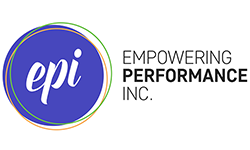Do You Have a Beginner’s Mindset?
You’ve likely heard of having a growth mindset (we’ve even discussed it before). But have you heard of having a beginner’s mindset? I recently decided to challenge myself with something new… I’ve been taking watercolor tutorials with my daughter! For someone who likes a certain amount of control, watercolor painting is definitely taking me out of my comfort zone.
For me, there is a disconnect between what I visualize in my mind and what comes out on paper. And because I think I should know how to do it (insert thoughts of “this shouldn’t be this hard!”), I get frustrated when my painting looks different than what I had in my head.
But I know that with each attempt, I’m learning. My daughter described it best when she said, “Sure, Mom, you need to understand the basics, but you can’t try to impose your will on it. It doesn’t work like that!”
Note to self: Trust the process and put aside the ego.
As we get older, we typically become an expert—whether it’s at a hobby, in our field of work, or on a specific topic. While that advanced knowledge can be valuable, sometimes it’s better to forget what you think you know and approach the task with a beginner’s mindset.
The concept of a “beginner’s mind,” or Shoshin, is from Zen Buddhism and is about training our minds to remove automatic tendencies or responses and have respect for the things we don’t know.
“In the beginner’s mind there are many possibilities. In the expert’s mind there are few.” – Shunryu Suzuki, Zen Master
In Tom Vanderbilt’s book Beginners: The Joy and Transformative Power of Lifelong Learning, he explains the value a beginner’s mindset brings to our lives. He also discusses the importance of how to learn well. Children are especially good at this but, after age 12, we lose some of our capacity to absorb new information.
However, no matter our age, research shows we still have “neuroplasticity,” which is our brains’ ability to “rewire” in response to new challenges. Pushing ourselves to learn new skills with a beginner’s mind brings positive, long-term brain changes that can offset the mental decline that can come with aging.
“But it seems that the jack of all trades—the perpetual beginner—may have a sharper brain than the master of one single ability.” – Tom Vanderbilt
There are many benefits to pursuing a beginner’s mindset. Here are four:
1. It helps you overcome your fear of failure.
For many people, the fear of failing often keeps them from trying something new. But how will you ever learn if you don’t try? The process of trying something—and not always succeeding at it—IS learning.
While failure can be uncomfortable, try to view it as essential feedback—the resulting lessons often lead to personal and professional growth.
2. You don’t always have to be the expert. (Whew!)
We don’t always want to admit we’re a beginner because it can make us feel vulnerable!
As adults, we often feel we must know the answer and have it all figured out—that somehow, if we don’t know how to do something, we are inadequate and someone “smarter than us” will prove to be superior. Our egos love to be seen as an expert.
However, there is a unique freedom in not needing to have all the answers!
Admitting what we don’t know doesn’t put us at a disadvantage. Instead, simply by saying, “I don’t know, I’d like to know more,” we open ourselves up to new life experiences and opportunities.
3. It increases your curiosity and creativity.
Between the ages of 2 and 5, kids ask an average of 40,000 questions, with studies showing a 4-year-old asks as many as 300 per day! Children are curious and beyond willing to adapt and change while playing.
As we get older, our curiosity sometimes wanes. Our personal tendencies hinder us. We can be stubborn. Sometimes we settle into autopilot. We become fixated on how things “should be” or how it’s “always been done.” It’s hard to unlearn what you think you know.
Having a beginner’s mind provides a fresh perspective. Try something new. Complete a task in a way that’s purposely “not how it’s always done.” And enjoy the process. You’re not necessarily obligated to the outcome, but deliberately approaching a new task or problem with a beginner’s mind helps you find creative solutions to challenges.
4. It boosts intellectual humility.
With a beginner’s mind, we can increase our intellectual humility— our ability to recognize the limits of our knowledge. And recognizing our limits, rather than seeing ourselves as experts, is powerful. This limitation makes us more teachable, improving our thinking and decision-making.
In addition, having intellectual humility provides:
Higher work engagement
Increased job satisfaction
Improved communication
Greater team collaboration
Openness to gaining new knowledge
As you take the leap to learn a new skill or hobby, there are certain to be frustrations and disappointments. But don’t let that stop you from opening yourself to new possibilities—they could end up being your most important experiences of the entire process. Your beginner’s mind is always accessible, if only you are brave (and patient!) enough to give it the opportunity it deserves to flourish.
Looking for more ways to develop your beginner’s mindset? Check out these 10 ideas.

